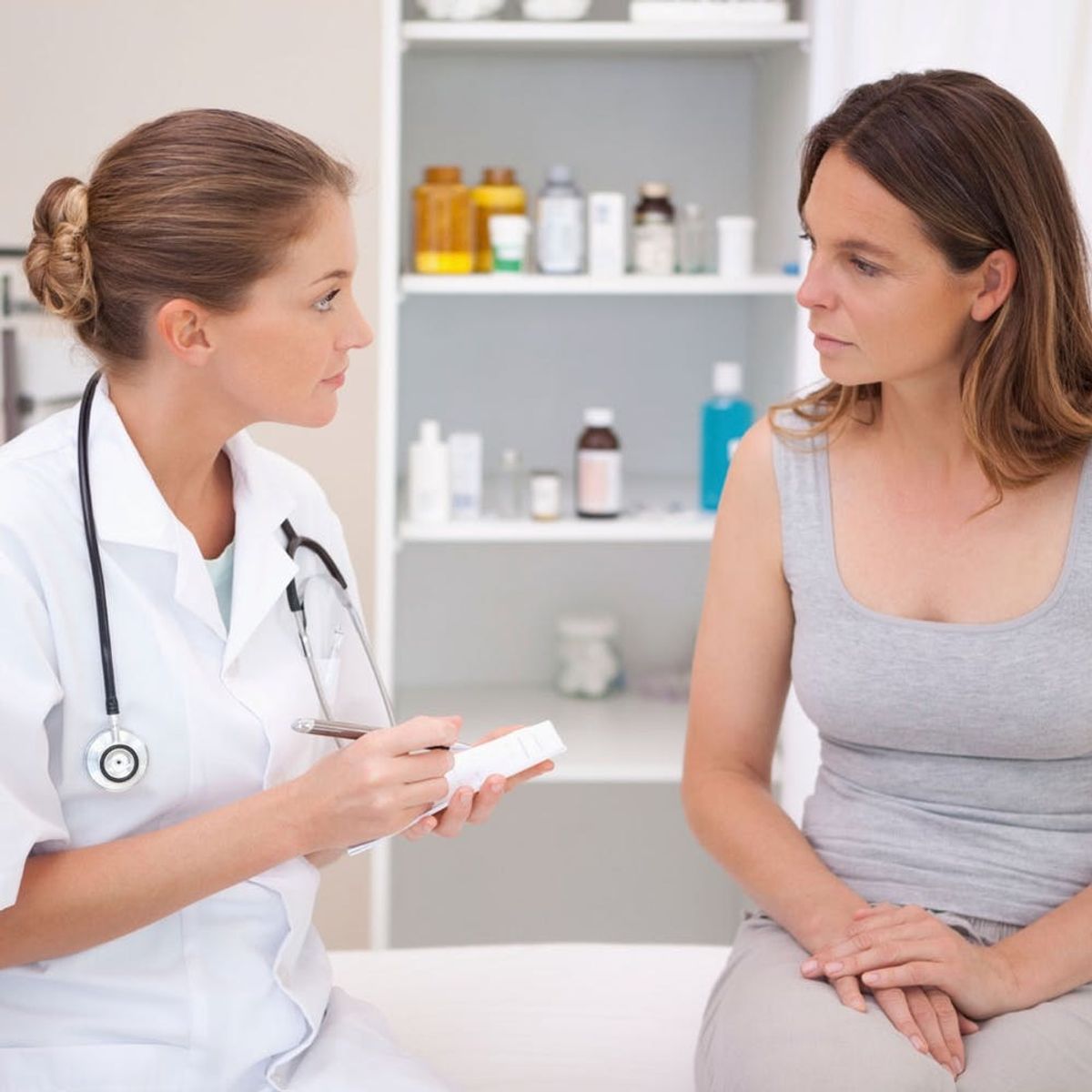Stay informed to stay safe.
5 Health Issues Doctors Say You Should Worry About in Your 20’s

Between regulating stress, finding and sticking to a sleep schedule and scheduling regular check ups with your lady doctor, there are about a million health concerns that could cause us to worry in our twenties and beyond. So just how are you supposed to know if you’re actually working out too much or if always being stressed is bad for you? Well, the truth is, everybody is unique, and what might be unhealthy for some could be perfectly normal for others. Which is why we wanted to hear what doctors thought ladies in their twenties should actually be worried about – breakups, career moves and house-buying not considered.
1. Getting Enough Calcium to Build Strong Bones
Mandy Unanski Enright, registered dietician and creator of Nutrition Nuptials, tells us, “Many women aren’t aware that we stop building our bones after age 30, and as a result, slowly start to lose bone density over the years. Bones that are fully developed during the teens and twenties will have higher stores of calcium and therefore be able to slowly use calcium stores over time. We develop healthy strong bones early in life, including your twenties, by eating healthy sources of foods including fresh fruits, vegetables, fish and dairy, and by performing resistance exercises to increase bone density. Diets high in sodium, processed sugars, sodas, caffeine and alcohol can increase the rate of bone density loss, so it is recommended to limit these foods as much as possible.”
2. Know Your Risk of Heart Disease
Dr. Anne Rosenfeld, professor and cardiovascular scientist at the University of Arizona College of Nursing and vice chair of the American Heart Association, says, “According to the American Heart Association, heart disease is the leading cause of death for women, and the death rate for younger women, ages 35-44, is continuing to increase. Considering 80 percent of heart disease is preventable, women in their twenties should take the following actions to prevent it: Follow a heart-healthy diet, exercise regularly, maintain a normal weight and know their blood pressure, cholesterol and blood sugar numbers.”
3. Cervical Cancer Prevention
Dr. Nicole Van Groningen at NYU Langone Medical Center shared with us, “The pap smear — the only cancer screening indicated for women in their 20s — is the gold-standard screening test for cervical cancer. Many women have been taught that they need a yearly pap, but because of new knowledge about how slowly cervical cancer grows, guidelines now indicate that every three years is sufficient, starting at age 21. Another must in preventing cervical cancer is the HPV vaccine, which is FDA-approved for women up to age 26. We know that virtually all cases of cervical cancer are linked to the HPV virus, so the vaccine is extremely effective at ultimately preventing cervical cancer. No other vaccine can do this. The FDA has also recently approved the vaccine for men too. So women can encourage the men in their lives to take part in preventing cervical cancer as well.”
4. Neglecting Your Teeth
Dr. Kyle Stanley, Helm | Nejad | Stanley – Dentistry, told us, “One of the first things women (men too) in their twenties neglect is their teeth. It is very common for people around this age to discontinue their regular yearly visits to the dentists and hygienist. The problem is that this neglect can cause minor, easily-fixable problems to go unnoticed, and they can develop into serious (and expensive) problems. My advice for women in their twenties is to do what you can at home: Brush twice a day and floss at least once a day, get professional cleanings twice a year from a hygienist and see your dentist once a year for a checkup.”
5. Recognize the Signs of Thyroid Disease
Dr. Westin Childs, Restart Medical, told us, “Probably the single most common diagnosis I see being missed in this age population is thyroid disease, predominately hypothyroidism and Hashimoto’s thyroiditis. Symptoms of this condition include weight gain, slow metabolism, hair loss, cold hands and feet, depression or anxiety and menstrual irregularities.”
Tweet us the health issues you’re most focused on @BritandCo.
(Photos via Getty)



















